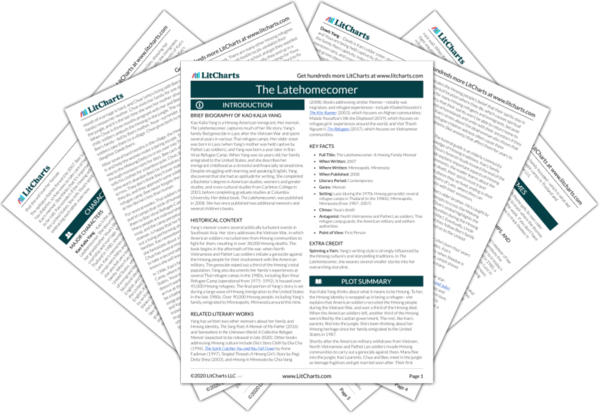Chue’s has an emotional crisis in the wake of her mother’s death—she even questions why she left her mother to be with her husband, suggesting that familial love (and maternal love in particular) is much deeper and stronger than romantic love. Meanwhile, Kao still feels a lot of pressure to succeed, knowing that her parents sacrifice a lot as immigrants. She also suggests that her parents make these sacrifices out of love for their children, reinforcing the idea that familial love is incredibly powerful.


